
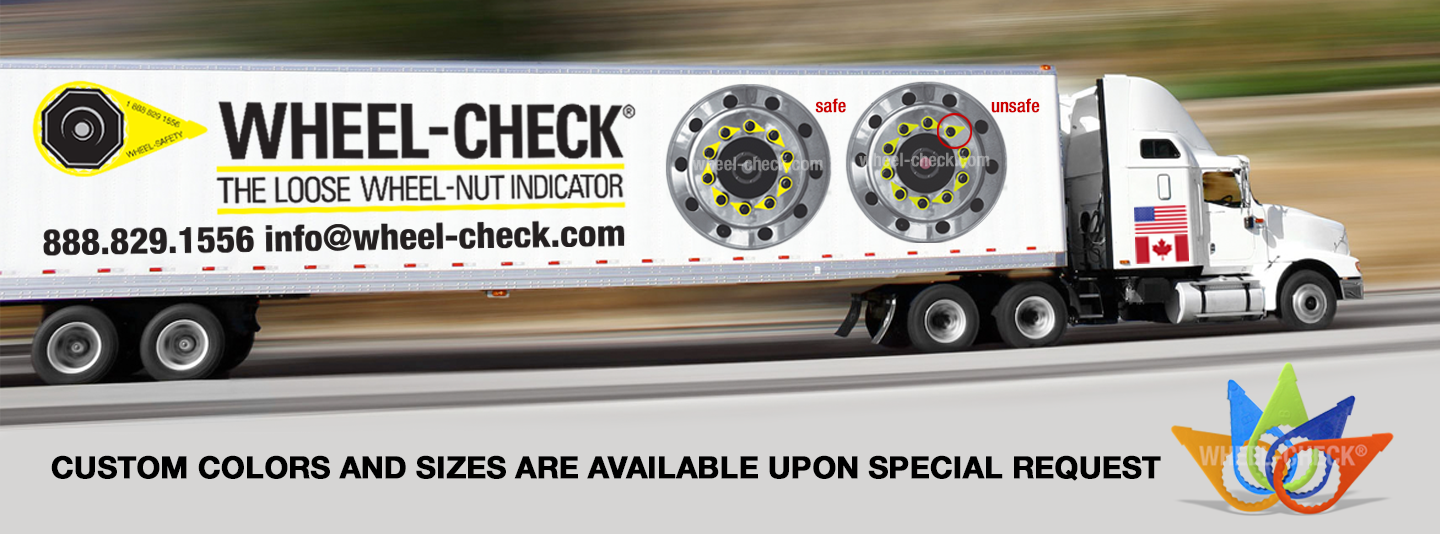
WHAT ARE LOOSE LUG NUTS WORTH? TRY $6.25 MILLION
Truckinfo.com
Wheel makers can preach 'til the cows come home about proper mounting procedures and varying torque specifications for various types of wheels. Who listens?
The boy who tightened the nuts on a set of dual aluminum wheels on one truck operator's rig apparently had heard nothing about torquing. Being only 14 (that's right — 14), maybe he wouldn't have listened anyway. But one of the wheels he worked on came off the truck as it traveled down a freeway in San Diego about three years ago. The wheel bounced atop a car, caved in its windshield and roof and bashed into the face of its driver. The 45-year-old motorist had been a construction materials dealer. Now, his wife and lawyer said, his damaged brain allows him to function like a 4-year-old. He's also blind in one eye and lost some hearing in one ear.
What are injuries like that worth? According to the newspaper article, the jury in the civil case said $6.25 million. Where is the money coming from? A relatively small amount — $750,000 — will come from the truck operator, because that was the limit of the liability amount available through his insurance. The plaintiffs therefore went to the deep pockets in the case: the produce company for whom the truck was hauling, the maker of the aluminum wheels and the builder of the truck. They, or their insurance companies, will pony up the remaining $5.75 million. Is that fair? The victims probably think so, and so might you if one of your loved ones had been injured and incapacitated in this way. Besides, their lawyer, and the lawyer for the trucking company, argued that some type of instructions should've been attached to the truck to tell mechanics the proper procedures for tightening lug nuts.
The kid who worked on this set said he didn't know the correct torque values, and had apparently over-torqued the wheel. Who knows — maybe if a sticker pasted on the truck frame or the wheel itself had said, "Torque lug nuts to proper specs per manufacturer's recommendations," that young wrench wielder might have asked questions and the wheel might have stayed on the truck.
Better yet, if some adult at the trucking company had looked over the 14 year old's shoulder and told him how to do the job, this wheel-off incident might not have occurred. Do your mechanics know what the proper torque specs are for the lug nuts on your wheels? Do they follow the proper mounting procedures for the type of wheels on your trucks? Do they understand that inner and outer cap nuts should be torqued separately, all to 385 lbs.-ft. or whatever the proper specs are for this wheel and these nuts? That mechanics should resist the temptation to hammer the hell out of the nuts until they're really "tight?" And that torque should be checked again after a few hundred miles? Oh — and how's your liability insurance?
Wheel-Check thanks truckinginfo.com for this informative story
For the latest news in trucking, go to www.truckinginfo.com
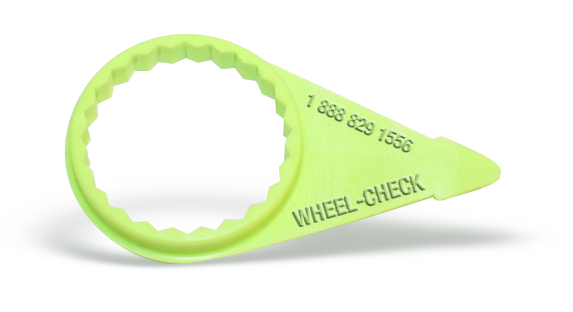
WHEEL-CHECK®: High visibility loose wheel-nut indicator
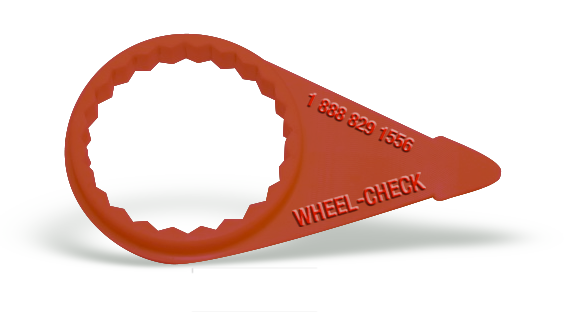
WHEEL-TORQUE: Red torque indicator used to mark a nut has backed off, and maintenance is aware of the problem
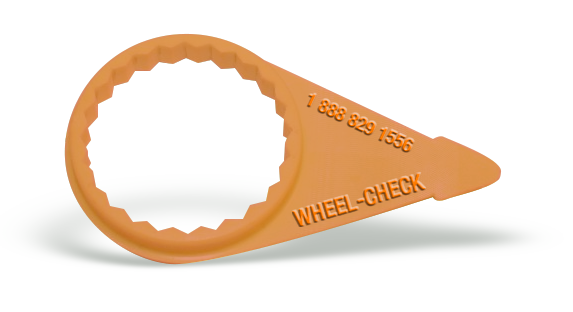
WHEEL-CHECK®, HIGH TEMPERATURE: Loose wheel-nut indicator that withstands higher temperatures
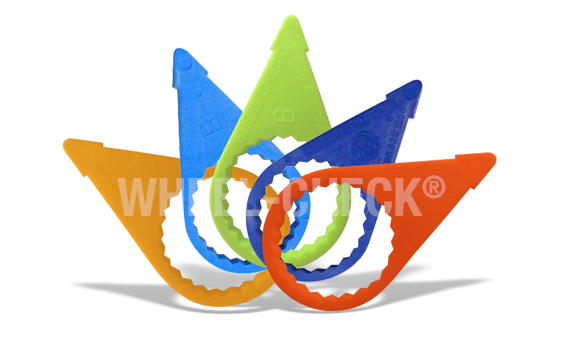
WHEEL-CHECK®, CUSTOM COLORS: Custom colors and sizes are available upon special request.
© All Rights Reserved. WHEEL-CHECK®, THE LOOSE WHEEL-NUT INDICATOR. "Over 25 years helping roads to be safer."
*The use of Wheel-Check® in no way guarantees wheel-offs will NOT occur.